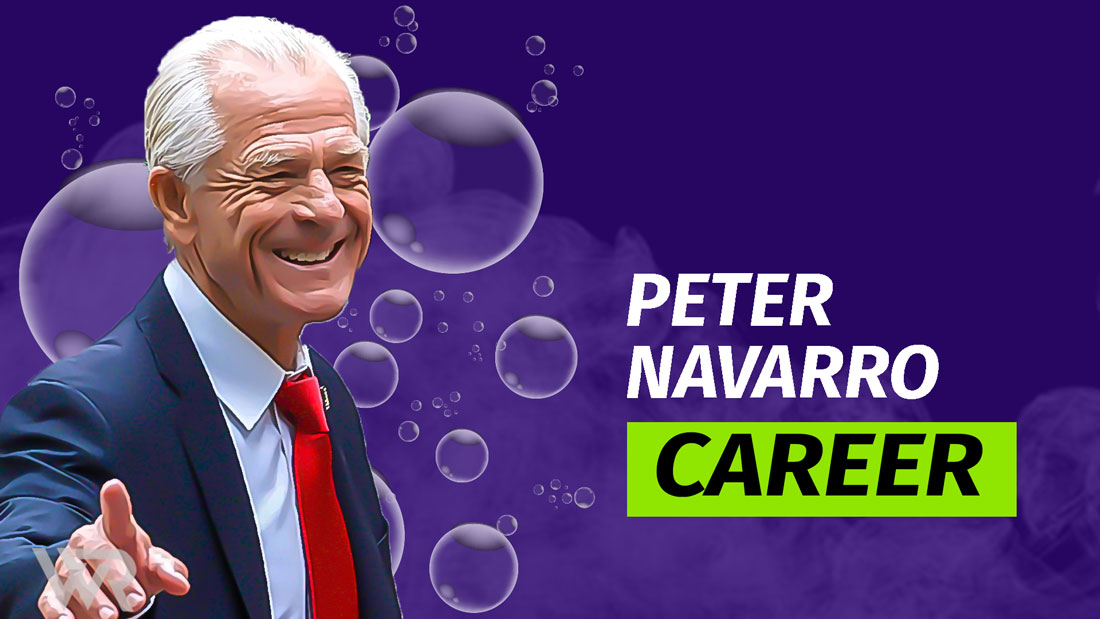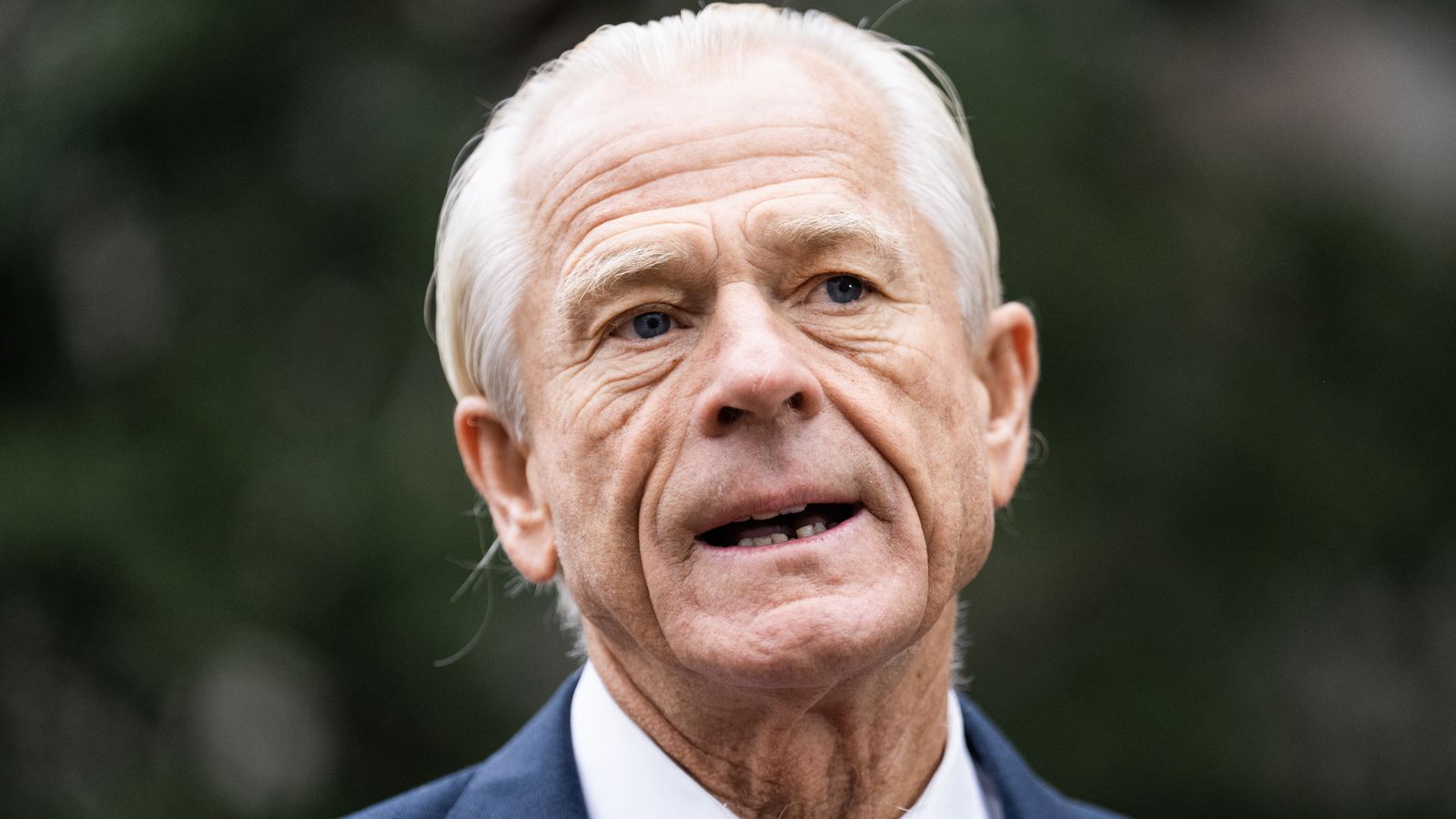Who doesn’t love a good origin story? Peter Navarro, a name that has sparked debates across political circles, is more than just a talking head on TV or a policy advisor. Understanding his background gives us a glimpse into the man behind the headlines. If you're curious about Peter Navarro's origin, you’ve come to the right place. This article dives deep into his roots, upbringing, and how he carved out his place in the world of economics and politics.
Peter Navarro’s story isn’t just about his rise to prominence; it’s about the influences that shaped his worldview and career trajectory. As we delve into his origins, you’ll uncover how his academic background, family ties, and personal experiences have played pivotal roles in his journey. Whether you admire him or disagree with his policies, there’s no denying the impact he’s had on the global stage.
This article is your ultimate guide to understanding Peter Navarro’s origin. From his early years to his current status as a key figure in economic discussions, we’ll explore every facet of his life. So buckle up, because we’re about to take a trip through time, uncovering the man, the myth, and the controversy surrounding Peter Navarro.
Read also:Bollyflix Your Ultimate Destination For Bollywood Entertainment
Table of Contents
- Biography: Who is Peter Navarro?
- Early Life and Education
- Academic Career
- Political Journey
- Key Ideas and Policies
- Controversies Surrounding Peter Navarro
- Personal Life and Family
- Economic Views and Influence
- Global Impact and Legacy
- Future Perspectives and Predictions
Biography: Who is Peter Navarro?
Peter Navarro, born on August 26, 1951, in New York City, is an economist, author, and former political advisor. He gained widespread recognition during his tenure as a key figure in the Trump administration, where he served as the Director of Trade and Manufacturing Policy. But before all that, Navarro carved out a niche for himself in academia, publishing books and research papers that challenged conventional economic thinking.
Navarro’s work often revolves around trade policies, manufacturing, and the U.S.-China relationship. His ideas have sparked both praise and criticism, making him a polarizing figure in the political arena. Understanding his biography helps shed light on the man who has become a central player in discussions about global trade and economic policy.
Early Life and Education
Growing up in Queens, New York, Peter Navarro had humble beginnings. His parents instilled in him a strong work ethic and a passion for learning. Navarro pursued his education with vigor, earning a Bachelor of Arts degree in economics from Columbia University. This was just the beginning of his academic journey, as he went on to obtain an MBA and a Ph.D. in business economics from the University of California, Berkeley.
During his time at Berkeley, Navarro developed a keen interest in international trade and economic policies. His research during this period laid the foundation for his later work in academia and politics. The skills and knowledge he acquired in these early years played a crucial role in shaping his career.
Academic Career
Peter Navarro’s academic career is marked by his contributions to the field of economics. As a professor at the Paul Merage School of Business at the University of California, Irvine, he taught courses on economics, finance, and international trade. Navarro’s passion for teaching and research earned him respect among his peers and students alike.
Some of his notable works include books like "Death by China" and "Crouching Tiger: What China’s Militarism Means for the World." These publications delve into the complexities of U.S.-China relations and the implications of China’s economic policies on the global stage. Navarro’s academic career not only solidified his expertise but also set the stage for his future in politics.
Read also:5 Plz The Ultimate Guide To Elevating Your Life In Five Simple Steps
Political Journey
Peter Navarro’s transition from academia to politics was anything but smooth. He initially gained attention through his outspoken views on trade and manufacturing. His book "Death by China" caught the eye of Donald Trump, who later appointed him to a key position in his administration. As the Director of Trade and Manufacturing Policy, Navarro played a significant role in shaping U.S. trade policies.
Navarro’s political journey is marked by his unwavering commitment to protecting American jobs and industries. He advocated for tougher trade policies against China, a stance that resonated with many Americans but also drew criticism from others. Despite the controversies, Navarro remains a prominent voice in the political landscape.
Key Ideas and Policies
Peter Navarro’s key ideas revolve around the importance of manufacturing and trade policies. He strongly believes in the need for the United States to adopt a more aggressive stance in its trade negotiations with China. Navarro argues that China’s unfair trade practices have led to job losses and economic decline in the U.S.
Some of the policies he championed include imposing tariffs on Chinese goods, encouraging American companies to bring manufacturing back to the U.S., and strengthening intellectual property protections. These policies have had a significant impact on the global economy, sparking both praise and criticism from various quarters.
Controversies Surrounding Peter Navarro
No discussion about Peter Navarro would be complete without addressing the controversies that have surrounded him. Critics accuse him of having a biased view of China, often labeling his policies as protectionist and isolationist. Navarro has also faced scrutiny for his role in the Trump administration, particularly during the pandemic, where his views on mask-wearing and other health measures were met with skepticism.
Despite the controversies, Navarro remains unapologetic about his beliefs and continues to defend his policies. He argues that his critics fail to see the bigger picture, which is the need to protect American interests in a rapidly changing global economy.
Personal Life and Family
Beyond the world of politics and economics, Peter Navarro leads a relatively private personal life. He is married and has children, though he rarely discusses his family in public. Navarro’s hobbies include reading and writing, which he often combines with his academic pursuits.
His upbringing in Queens instilled in him a love for New York sports teams, a passion he still holds dear. Navarro’s personal life, while not extensively documented, provides a glimpse into the man behind the headlines, revealing a side of him that is often overlooked in the political arena.
Economic Views and Influence
Peter Navarro’s economic views have had a profound influence on U.S. policies. His advocacy for a return to manufacturing and his focus on trade imbalances have reshaped the economic landscape. Navarro argues that a strong manufacturing base is essential for economic stability and national security.
His influence extends beyond policy-making, as he has inspired a new generation of economists and policymakers to rethink traditional approaches to trade and economics. Navarro’s ideas may not be universally accepted, but they have undoubtedly sparked important conversations about the future of global trade.
Global Impact and Legacy
Peter Navarro’s impact on the global stage is undeniable. His policies have influenced trade relations between the U.S. and China, affecting economies worldwide. Navarro’s legacy will likely be defined by his unwavering commitment to protecting American jobs and industries, even if it means challenging the status quo.
As the world continues to grapple with the complexities of globalization, Navarro’s ideas will undoubtedly remain relevant. Whether his policies lead to long-term benefits or challenges remains to be seen, but one thing is certain: Peter Navarro has left an indelible mark on the global economic landscape.
Future Perspectives and Predictions
Looking ahead, Peter Navarro’s future perspectives and predictions are likely to focus on the evolving relationship between the U.S. and China. He may continue to advocate for stronger trade policies and greater emphasis on manufacturing. Navarro’s predictions about the global economy could shape the policies of future administrations.
As the world becomes increasingly interconnected, Navarro’s ideas may gain even more traction, influencing how countries approach trade and economic policies. His legacy will continue to inspire debates and discussions about the future of global trade and economic relations.
Conclusion
In conclusion, Peter Navarro’s origin story is one of perseverance, passion, and controversy. From his early years in Queens to his prominent role in the Trump administration, Navarro has left an indelible mark on the world of economics and politics. His ideas, while polarizing, have sparked important discussions about the future of global trade and economic policies.
We invite you to share your thoughts on Peter Navarro’s journey. Do you agree with his policies, or do you think there’s another way forward? Leave a comment below or share this article with your friends and family. Together, let’s continue the conversation about the future of global trade and economics.
Remember, the world is watching, and your voice matters. Keep the dialogue going, and let’s shape the future together.


